As we celebrate 76 years of Indian independence, take some time to find out how much do you know about the people, places and events related to the freedom struggle.
Also try Independence Day Quiz #2 and Independence Day Quiz #3.
Results
Independence Day Quiz #1
Brought to you by Kendriya Vidyalaya Adoor Library
Well done, guest! You deserve a trophy!Reload quiz

Also try Independence Day Quiz #2 and Independence Day Quiz #3.
Views: Today 1 | Total 1,568
Independence Day Quiz #1
Brought to you by Kendriya Vidyalaya Adoor Library
Nice try, guest. Why don't you take the quiz again?
Reload quiz

Also try Independence Day Quiz #2 and Independence Day Quiz #3.
Views: Today 1 | Total 1,568
#1. The Muslim League demanded a separate state for the Muslims in the year

#2. The speech delivered by Jawaharlal Nehru, the first Prime Minister of independent India, to the Indian Constituent Assembly in The Parliament, on the eve of India's Independence, is famously known as
#3. Who was the president of Congress when it declared "Poorna Swaraj" as its objective?
The Poorna Swaraj declaration was promulgated by the Indian National Congress on 26 January 1930, resolving the Congress and Indian nationalists to fight for Poorna Swaraj, or complete self-rule independent of the British Empire. Jawaharlal Nehru was the president of the Indian National Congress at that time.
#4. Who among the following gave maximum resistance to the British?
#5. The Rowlatt Act was passed in the year
The Rowlatt Act was passed by the British government to enhance their superiority over the common people. This law was passed in March 1919 by the Imperial Legislative Council which gave them the power to arrest any person without trial. To abolish this act, Gandhi and the other leaders called for a Hartal (a time of fasting and suspension of work) to show Indians’ objection with this rule.

#6. Who among the following did not participate in official events of Indian Independence Day 1947?
Mahatma Gandhi did not participate in the official event of Indian Independence Day 1947. Instead, he marked the day with 24 hours fast in Calcutta, encouraging peace during riots.
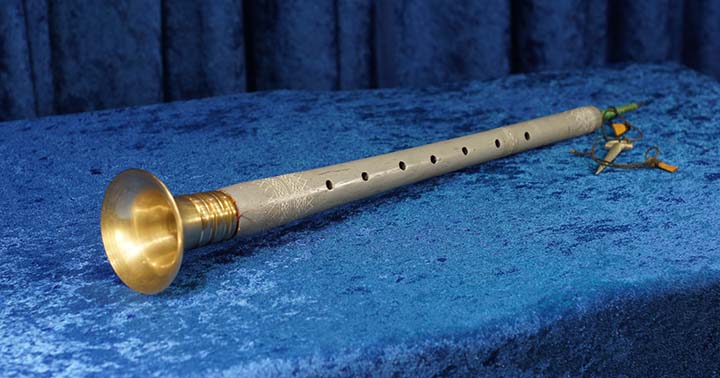
#7. Who among the following played shehnai at the celebration of Indian Independence Day of 1947?
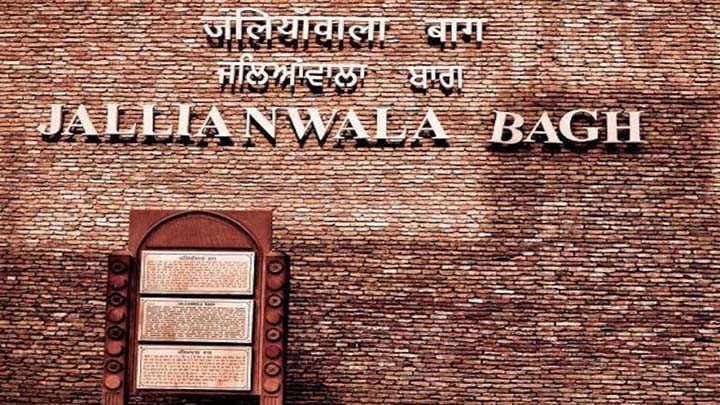
#8. The Jallianwala Bagh massacre, also known as the Amritsar massacre, took place on
The Jallianwala Bagh massacre, also known as the Amritsar massacre, took place on 13 April 1919. A large but peaceful crowd had gathered at the Jallianwala Bagh in Amritsar, Punjab to protest against the arrest of pro-Indian independence leaders Dr. Saifuddin Kitchlu and Dr. Satya Pal. In response to the public gathering, the British Brigadier-General R. E. H. Dyer surrounded the Bagh with his soldiers. The Jallianwala Bagh could only be exited on one side, as its other three sides were enclosed by buildings. After blocking the exit with his troops, he ordered them to shoot at the crowd, continuing to fire even as protestors tried to flee. The troops kept on firing until their ammunition was exhausted. At least 1000 people were killed and over 1,200 other people were injured of whom 192 were seriously wounded.
[Refer Jallianwala Bagh massacre article in Wikipedia]
[Refer Jallianwala Bagh massacre article in Wikipedia]
#9. 6 April, 1930 is well known in the history of India because this date is associated with
The Dandi March or the Salt March, also known as the Salt Satyagraha, and the Dandi Satyagraha, was an act of nonviolent civil disobedience in colonial India led by Mahatma Gandhi. The twenty-four day march lasted from 12 March 1930 to 5 April 1930 as a direct action campaign of tax resistance and nonviolent protest against the British salt monopoly. Another reason for this march was that the Civil Disobedience Movement needed a strong inauguration that would inspire more people to follow Gandhi’s example. When Gandhi broke the British Raj salt laws at 6:30 am on 6 April 1930, it sparked large scale acts of civil disobedience against the salt laws by millions of Indians.
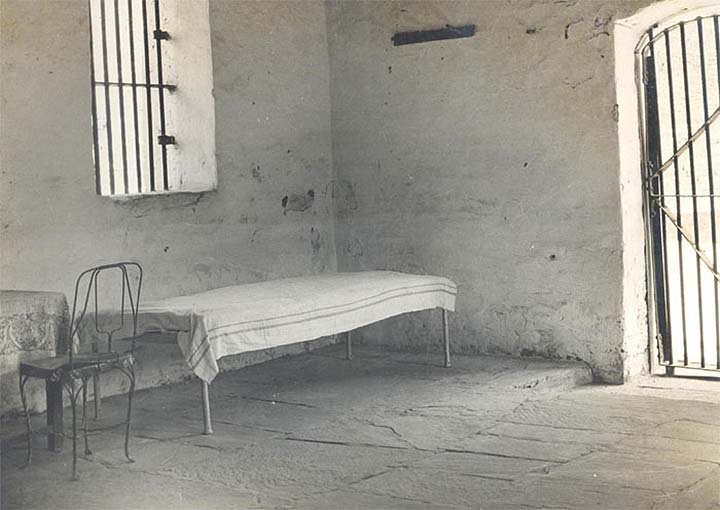
#10. During India's struggle for freedom from the British, how many times was Pandit Nehru imprisoned?
#11. In which year Jawaharlal Nehru was elected Congress president for the first time?
#12. First Deputy Prime Minister of India, Vallabhbhai Patel was given the responsibility of which of the following ministries?
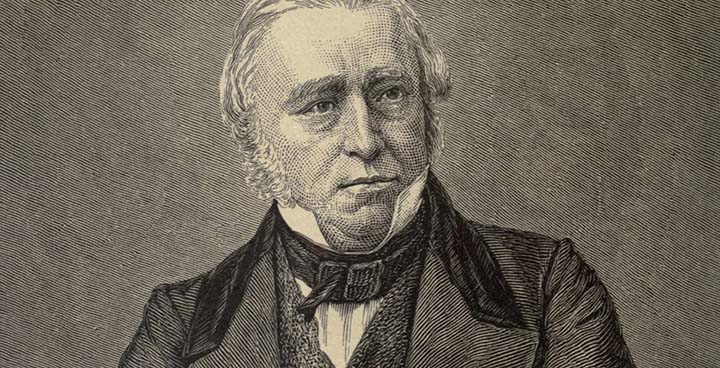
#13. In which year was English recommended as the medium of instruction for higher education in India by Lord Macaulay?
#14. The Hunter Commission was appointed by the British to probe the
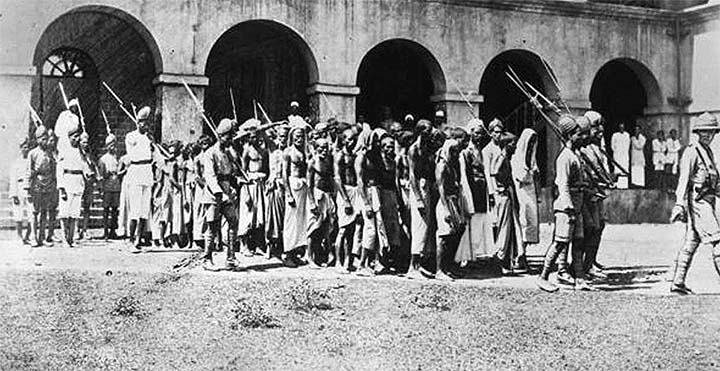
#15. Mappila Rebellion is associated with which of the following states?
The Malabar rebellion of 1921 (also known by the names Moplah riots, Mappila riots) started as a resistance against the British colonial rule in Malabar region of Kerala. The popular uprising was also against the prevailing feudal system controlled by elite Hindus. The British had appointed high caste Hindus in positions of authority to get their support, this led to the protest turning against the Hindus.
For many scholars, the rebellion is primarily a peasant revolt against the colonial government. During the uprising, the rebels also attacked various symbols and institutions of the colonial state, such as telegraph lines, train stations, courts and post offices. The main leaders of the rebellion were Ali Musliyar, Variankunnath Kunjahammad Haji, Sithi Koya Thangal, M. P. Narayana Menon, Chembrasery Thangal, K. Moideenkutti Haji, Kappad Krishnan Nair, Konnara Thangal, Pandiyatt Narayanan Nambeesan, and Mozhikunnath Brahmadathan Nambudiripad.
[Refer Malabar rebellion article in Wikipedia]
For many scholars, the rebellion is primarily a peasant revolt against the colonial government. During the uprising, the rebels also attacked various symbols and institutions of the colonial state, such as telegraph lines, train stations, courts and post offices. The main leaders of the rebellion were Ali Musliyar, Variankunnath Kunjahammad Haji, Sithi Koya Thangal, M. P. Narayana Menon, Chembrasery Thangal, K. Moideenkutti Haji, Kappad Krishnan Nair, Konnara Thangal, Pandiyatt Narayanan Nambeesan, and Mozhikunnath Brahmadathan Nambudiripad.
[Refer Malabar rebellion article in Wikipedia]
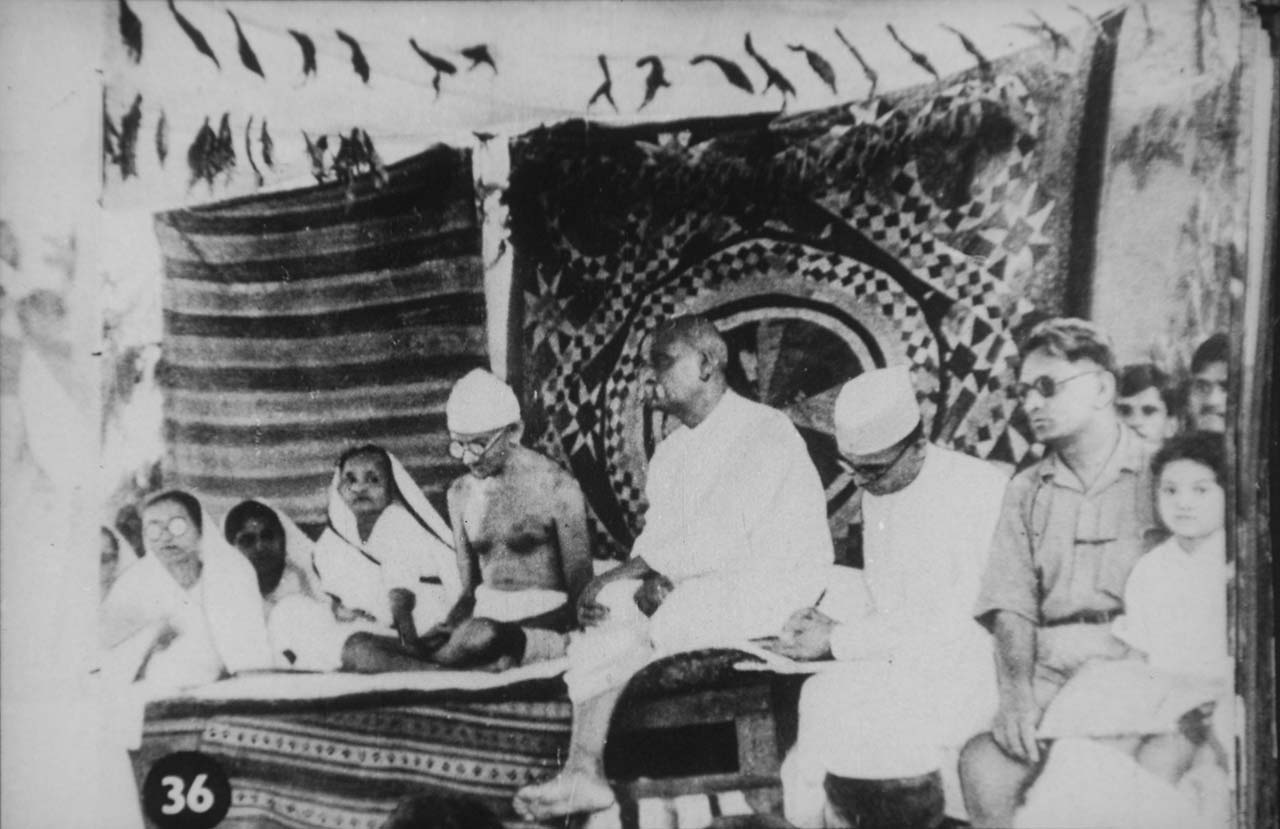
#16. In 1928, as part of non-violent civil disobedience against oppressive policies imposed by the British Raj, Vallabhbhai Patel organised peasants from all the following places of Gujarat except
#17. Who among the following was the last Maharaja of Jammu and Kashmir?
Maharaja Hari Singh was the last Maharaja of Jammu and Kashmir. He asked for India’s help when Pakistan invaded Kashmir on 24th October 1947.
#18. In the year 1613, where was the English East India Company given permission to set up a factory (trading post)?
#19. Which of the following treaties marked the beginning of British rule in India?
The Treaty of Allahabad was signed on 12 August 1765, between the Mughal Emperor Shah Alam II, son of the late Emperor Alamgir II, and Robert Clive, of the East India Company, in the aftermath of the Battle of Buxar of 23 October 1764. The Treaty marked the political and constitutional involvement and the beginning of British rule in India.
#20. Who among the following was called "Punjab Kesri"?
#21. What is the theme of India's 77th Independence Day celebrations in 2023?
#22. "Swaraj is my birthright and I shall have it!" - Whose quote is this?
#23. Who among the following Europeans were the last to come to pre-independence India as traders?

#24. When was the Quit India Movement launched by Mahatma Gandhi?

#25. In which of the following years, did the British introduce Gregorian calender in their dominion in India?
Views: Today 1 | Total 1,568





Happy independence day
I got 19/20 it was a intresting and amazing quiz .